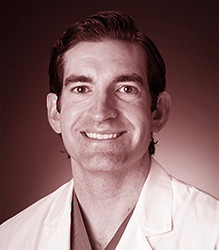3 Little Rock Cardiologists Break Some Heart Myths

Heart disease is the the leading cause of death in the U.S., affecting people of all ages, economic statuses and backgrounds. But while cardiovascular health is — and should be — on everyone’s radar, there are still a lot of misconceptions about how it all works. We asked three local cardiologists to set the record straight on the most common myths surrounding heart health.

Dr. Monica Lo
Arkansas Heart Hospital
Myth: Heart disease is really a man’s problem.
Women with heart disease actually have a higher risk of death compared to men. This is largely attributed to under-referral, under-testing and under-treatment of women. It was not until 1994 that the National Institute of Health required women to be included as research subjects. Not until 2000 did they make it a requirement to adhere to this guideline.
Heart disease is the leading cause of morbidity and mortality in U.S. women — more than breast cancer and lung cancer combined. Women more often present atypical symptoms, such as less exertional chest pain, and their triggers are often stress-related. Smoking is the most important preventable cause of heart attacks in women. In addition, smoking with oral contraceptive use increases the risk of heart attack, stroke and blood clots.

Dr. David Jones
Baptist Heart Health Institute
President, Central Arkansas Chapter of the American Heart Association
Myth: Heart disease runs in my family, so there is nothing I can do to prevent it.
Family history is one of the most important predictors of heart disease, no doubt about it. The misconception arises when people believe they cannot affect the development of heart disease. The truth is that heart disease follows family lines primarily because children learn their parents’ bad habits at an early age.
Instead of shrugging off family history, I ask the patient what is similar and different about the parent who had heart disease. I emphasize the importance of being different than said parents by modifying risk factors like smoking, high blood pressure, high cholesterol, obesity and diabetes.
As a cardiologist, I rarely see patients before they develop these issues, but if I did, I would preach to them about preventing risk factors rather than having to treat them. Those with a strong family history can do nothing about their genetics, but this means that they have to do even more to prevent heart disease by living a heart-healthy lifestyle.

Dr. Gary Nash
Arkansas Heart Hospital
Myth: If you have heart disease, you need to take it easy.
People who live an active lifestyle fare much better than those who lead a sedentary lifestyle, especially if they have heart disease. Exercise helps to improve functional capacity in patients with heart disease. Furthermore, it helps improve control of diabetes, hypertension and high cholesterol, which many heart patients have.
The Arkansas Heart Hospital has a program called Strong Hearts Cardiac Rehabilitation. The purpose of the program is to exercise patients after heart surgery or a heart attack. As always, consult your doctor before beginning an exercise program.







